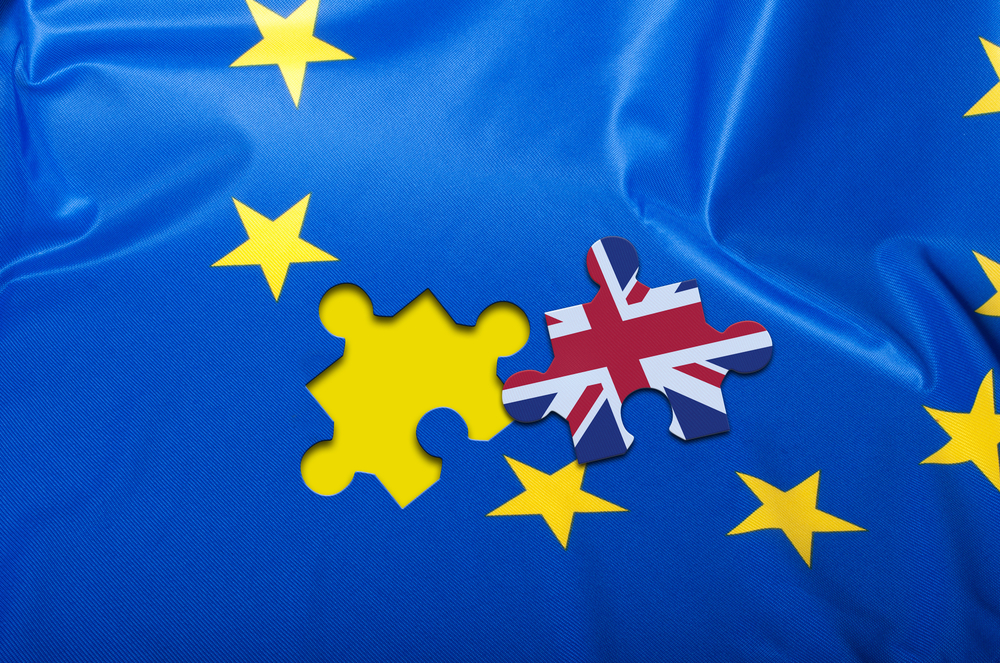With arms flailing and raised voices, a shipping manager and a customs chief in the Belgian port of Zeebrugge talk through all the things that could go wrong if the Brexit talks fail.
“It is scary. Now, all companies around here and on the continent, they start to be worried. And they say: ‘Okay, it could be serious.'”
Trucks backed up for miles on the highway. Car manufacturing plants idled as deliveries are delayed. Mountains of paperwork paralyzing small companies that can’t afford teams of lawyers.
Not since the 1970s have port towns like this had to deal with customs in their massive trade with Britain, and that could change on Brexit day on March 30, 2019. Britain and the European Union are struggling to agree on the terms of business after that date, raising the chances of a sudden return of tariffs and border controls. And while Brexit has not so far been a big concern for many people in continental Europe, the prospect of there being no deal is starting to unnerve companies and authorities — particularly in places like ports that operate on the front lines of global trade.
“It is scary,” says Marc Adriansens, the managing director of the ICO car shipping company. “Now, all companies around here and on the continent, they start to be worried. And they say: ‘Okay, it could be serious.'”
Kristian Vanderwaeren, the administrator-general of Belgian customs, says this will cost companies a lot to prepare for. “It’s a huge, huge problem,” he says.
Ominous warnings of what would happen if trade is suddenly disrupted between Britain and the EU have dominated headlines since the campaign before the Brexit vote in June 2016. The aim for both Britain and the EU is to agree on the terms of future trade as well as on a two-year transition period after Brexit day that would give companies and governments more time to adapt to any new rules. The lack of progress is raising the risk of Britain falling out with no agreed terms, a feared situation called variously a “hard,” ”no-deal” or “cliff-edge” Brexit.
What’s at stake is visible during Vanderwaeren’s check of the port — in the brisk traffic of trucks on the aptly-named Brittannia dock. Everything from engine parts to orange juice is lined up for transport to Britain, part of the half trillion pounds ($650 billion) in goods and services traded between the continent and the U.K. every year.
Ever since the Middle Ages, ships from England have been mooring on the Flemish coast to unload wool and pick up local cloth and other goods from European partners far and wide. Commerce has grown over time and Zeebrugge is now the port that handles the most cars anywhere in the world, with about 2.8 million rolling through every year — 1 million of which are to and from Britain.
The local authorities are getting ready for the worst of Brexit outcomes to protect that business.
Joachim Coens, the CEO of Zeebrugge port, says that if tariffs and customs checks on trade with Britain do in fact return, new digital technologies can be used to smoothen out border controls somewhat.
Vanderwaeren plans to double the number of customs officers in Zeebrugge by hiring another 140 to check the Belgian border. The IT system has been upgraded, scanning machines for customs checks have been bought and more sniffer dogs will be made available.
“We are preparing for a Brexit-proof port,” said Coens.
The Republic of Ireland, an EU member country, gets most of its goods transported through U.K. territory and has sought to ensure it is not cut off from the rest of the bloc because of Britain’s exit. It got help from a new ship, formally called the “Celine” but also dubbed “the Brexit Buster,” that will be able to transport goods directly between Dublin and Belgium, bypassing Britain.
Irish Prime Minister Leo Varadkar was on hand when the ship, which is 234 meters (767 feet) long and has nine decks big enough to carry vehicles, was christened in April.
That will not be enough, however, to soften the impact of a “hard” Brexit on Zeebrugge, where nearly half of all goods shipped through the port either goes to or comes from Britain.
Adriansens says his company handles half of the 1 million cars traded annually with Britain through the port. After the Brexit vote in 2016, sales went down by 15 percent and have not recovered. He says there could be another 20 percent drop if Brexit happens without a trade deal.
“Out of the 500,000, this is 100,000 cars… This is something we don’t like to lose, but we cannot control that,” said Adriansens.
Beyond the volume of business, the speed of transport is also key, not just for perishable goods like food that can rot if left in containers but also for manufacturing products. Modern car plants, for example, do not store many parts on location, meaning their production schedule depends entirely on the timely delivery of the parts, often from various countries.
That production could get held up if Brexit creates traffic jams on both sides of the channel.
About 4,000 trucks drive through Zeebrugge to Britain, says Coens.
“If they are even blocked for a few hours then you have 60 kilometers (40 miles) of blockage,” said Coens. “Nobody wants that.”
© The Associated Press. All rights reserved.
